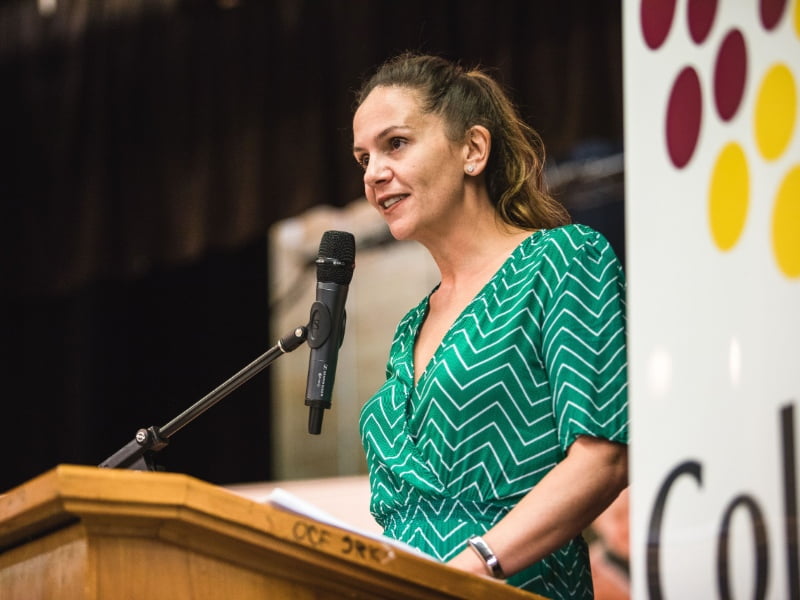Google is still not happy with the federal government’s media bargaining code and has indicated it may not accept the final version if it remains unchanged.
Legislation implementing a news media bargaining code, which will force Google and Facebook to enter into revenue-sharing deals with Australian media companies, was introduced to Parliament last week and referred to a senate committee for inquiry.
The federal government made a number of concessions to the tech giants with the final version of the code, but this has not appeased Google, with its Australian general manager Mel Silva labelling the code still unworkable and saying that it would “fundamentally break” its search engine.

“While the government has made some changes, the legislation still falls far short of a workable code. As the legislation goes to a Senate committee for inquiry, it has serious problems that need to be worked through,” Ms Silva said in a blog post on Friday.
“This sets the groundwork to unravel the key principles of the open internet people use every day – something neither a search engine nor anyone who enjoys the benefits of the free and open web should accept.”
Ms Silva raised particular concern with the final offer-style arbitration that Google would be forced to enter in to, and for a requirement to provide notice of relevant algorithmic changes.
Google is attempting to argue that the bargaining code amounts to requiring the tech giant to pay for links included in search results, something it said would create “huge uncertainty and risks”, ones that “no rational business would accept”, hinting that it may refuse to comply with the code if it is passed into law as is.
“This is an unprecedented intervention that misunderstands how the web works and has huge implications not just for search engines but the internet as a whole. You don’t have to pay when you share a link to something with a friend, and no website or search engine pays to connect people to other sites through links,” Ms Silva said.
“We’ve identified these issues repeatedly during the consultation process because they would do serious damage to the fundamentals of our services – the reasons Australians choose to use Google in the first place. They would replace a search engine model that’s built to serve everyone with one skewed to the interests of one type of business only.”
The code will require Facebook and Google to enter into forced “final offer” arbitration if they cannot reach a revenue-sharing deal with a media company within three months. An independent arbitrator will then pick from one of the final offers from each party.
In a significant change, the final legislation now requires the two-way value to be considered, including the value that the tech giants provide to media businesses in referral traffic.
But Google has still railed against this “baseball” arbitration, arguing for a standard commercial arbitration model related only to its News Showcase product instead.
“The current model still isn’t based in commercial reality. Ultimately, by imposing final-offer arbitration with biased criteria, it encourages publishers to go to arbitration rather than reaching an agreement,” Ms Silva said.
“While the code professes to recognise the value Google Search provides to publishers, in fact it encourages publishers to argue that arbitrators should disregard that value,” she said.
“It does this by allowing the arbitrator to consider a hypothetical scenario in which there is no Google Search and yet publishers receive the same amount of traffic, just from other sources. This scenario – laid out in the explanatory materials – invites unfair outcomes based on speculation rather than evidence.”
Ms Silva said Google has estimated the value of its referrals to news websites to have been $218 million in 2018.
The final code also requires Google and Facebook to provide 14 days’ notice of any relevant algorithmic changes made by humans impacting the presentation of news content.
This proved to be another sore point with Google, and despite the government halving the notice period time, Ms Silva said it should be limited to actionable changes such as if a media company should make its website more mobile friendly.
“Even if we could comply, that would delay important updates, drive up operating costs, and mandate special treatment to news publishers in a way that would disadvantage everyone else,” she said.
Ms Silva said Google is still open to working with the government on the legislation through the senate inquiry.
“Those high stakes are why we’ll continue to stand firm where the code threatens the fundamentals of our service. But we strongly believe that with the practical changes we’ve outlined, there is a path forward,” she said.
“As we enter this new stage of the process, we’ll keep engaging constructively with the government, members of parliament, the news industry and the ACCC, so we can get to a final code that works for everyone: publishers, platforms and all Australians.”
Facebook has remained largely silent on the code since it threatened to ban all Australian news content from its platform upon its initial release.
The Senate committee is expected to table its report on the legislation in February.
Do you know more? Contact James Riley via Email.

